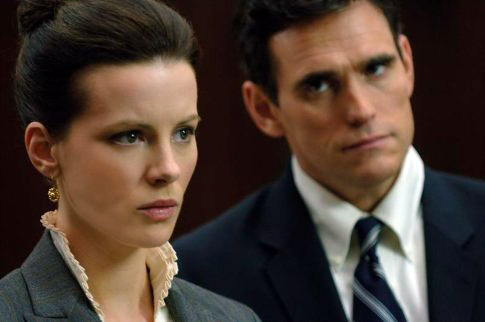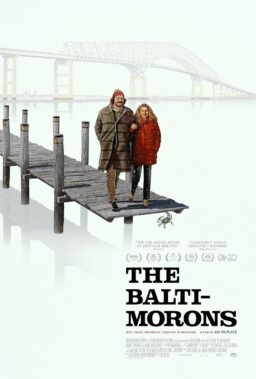Have you heard about the new thriller involving U. S. Attorney Patrick Fitzgerald? The story calls him “Dubois” and he’s played by Matt Dillon, but he’s Fitzgerald, all right. Kate Beckinsale plays “Rachel Armstrong,” who is clearly New York Times reporter Judith Miller, in Fitzgerald’s famous 2005 case involving the Valerie Plame affair.
The movie is named “Nothing But the Truth,” and it’s a spellbinding whodunit that played at this year’s Toronto Film Festival. It will be a 2009 release, and now with Fitzgerald a media star all over again because of the Rod Blagjeovich scandal, it could generate interest beyond its target audience.
The movie is a politically-savvy, fictionalized version of the Valerie Plame affair. That included Miller refusing to name her source for information about a leak outing Plame as a covert CIA agent. She was cited for contempt by Fitzgerald, and served 85 days in prison. Her source was later revealed to be Dick Cheney’s chief of staff, “Scooter” Libby, who was indicted by Fitzgerald for perjury and obstruction of justice and sentenced to 30 months in prison, later commuted by President Bush.
The film, written and directed by Rod Lurie (“The Contender“), observes the fallout as the reporter refuses to testify, goes to prison, and sees her marriage and family crumbling. It succeeds in making reporting and ethics into the stuff of a cliff-hanger. Alan Alda plays her veteran attorney and David Schwimmer is her husband.
The Fitzgerald character is not played by Matt Dillon as a heavy. In fact, Lurie told me today, “Dillon was convinced he was the hero of the film. A guy not only doing his job but serving the common good. He feels that Kate Beckinsale‘s character is more or less harboring a criminal — somebody whose actions serve to undermine our national security. He does become obsessed with the case and doesn’t like to lose, but he will go to his death thinking it’s okay to jail journalists, because he feels that they are not above the law.”
How does Lurie himself feel? “The film isn’t so much about the first amendment,” he said, “as it is about trying to stem the power and corruption in government, which too often goes unchecked — to the degree that many prosecutors violate our basic rights without giving it a second thought. In the Blagojevich case, however, it does seem that Fitzgerald, (who you could say is the model for the Dillon character) is very much in the right going after the Governor.”
As for the audience, our sympathies are with the reporter, although we wonder who she’s protecting at such a personal cost. In Lurie’s version, her source is revealed not as Libby, but as someone a great deal more interesting.












